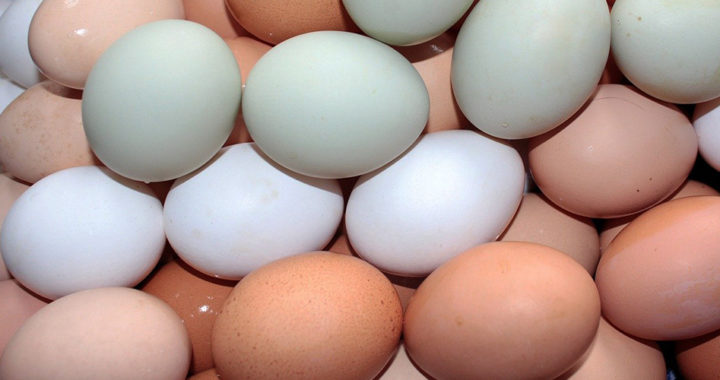Are brown eggs better than white eggs? Is there any nutritional difference between the two? Which one is healthier? What is the difference between the two varieties?
The Difference Between White Eggs and Brown Eggs
The Formation of Chicken Eggs and How They Get Their Color
Some believe that the color of the feathers dictates the color of eggs. However, this is not entirely true. The color of the earlobes is a better determinant. Chickens with white or lighter earlobes tend to lay white eggs those with red earlobes usually lay brown eggs.
It is still important to note that the color of the earlobes is not an accurate determinant of the color of the eggshells. A specific gene is responsible for pigmentation. Furthermore, all eggs start out white while developing inside the shell gland of a chicken. The pigment gets added at the end of the shell-making process.
Nutritional Difference Between White Eggs and Brown Eggs
Remember that the color is deposited at the end of the entire process in egg production. The contents of the egg are formed at the beginning of the process. To be specific, the egg begins as a yolk that forms once ovulation occurs. It enters the oviduct tube where the egg white or albumen develops for the next three hours.
Nevertheless, there is no substantial nutritional difference between a white egg and brown egg because the formation of the yolk and albumen are similar. The only difference in the reproduction process occurs at the end where color is deposition. However, a brown egg may have slightly more Omega-3 fatty acids, but the amount is almost negligible when compared to a white egg.
Some farmers and distributors tend to market brown eggs as organic food. However, feeding brown-laying chicken with processed feeds would not make the eggs they produce “organic.” Brown does not necessarily mean organic and the “organic” labeling can also be applied to white eggs.
Other Notable Differences Between White and Brown Eggs
Price is a notable difference. Brown eggs are more expensive. The reason behind this is that brown-laying chickens need more nutrients and energy to produce an egg than their white-laying counterparts. Hence, chickens that produce brown eggs eat more food, thus affecting the price of the eggs they lay.
There is also a slight variation in taste. Of course, this has nothing to do with their nutritional profile. Brown-laying and white-laying chickens have different diets, which impact the taste of the eggs they produce. Note that the yolk in a brown egg tends to be darker because brown-laying chickens are usually fed more corns to meet their dietary requirements.
Placing both brown-laying and white-laying chickens under the same diet, especially food amount and composition, would result in similar-tasting eggs and similar-colored yolks. Also, the way farmers raise their chickens primarily determine the quality of the eggs they produce.






